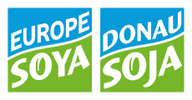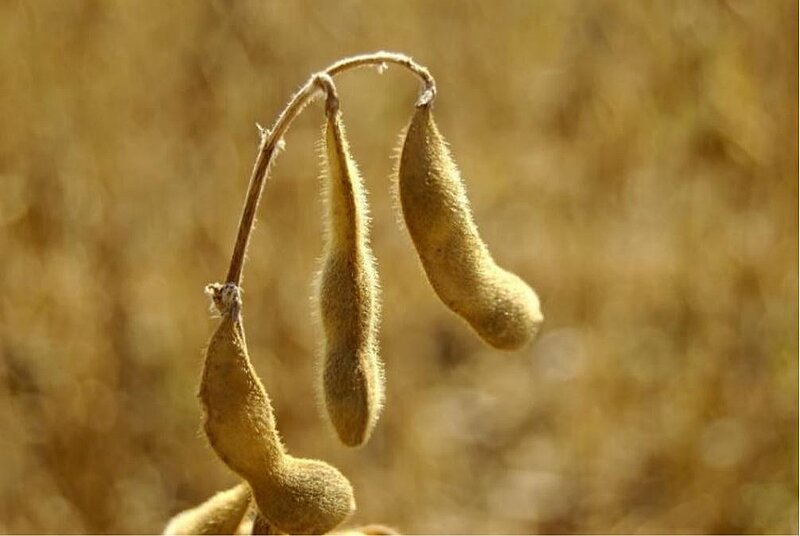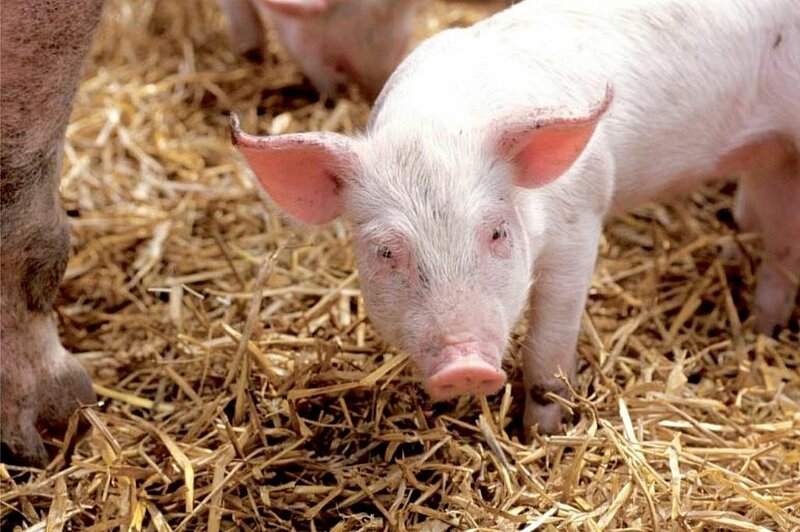Unprocessed soya beans low in trypsin inhibitors in organic pig fattening diets
Problem
Soya beans are rich in protein, but they contain antinutritional components such as trypsin inhibitors, which means that thermal processing is required before feeding to pigs and poultry. However, heat treatments are costly and cause damage to wanted nutrients, including protein. Special cultivars of soya bean containing lower levels of trypsin inhibitors have been developed, but there is little knowledge available about the potential of these varieties in organic pig fattening in Europe.
Solution
Results from recent pig feeding trials in Austria show that heat-treated soya can be replaced with unprocessed (full fat) soya, low in trypsin inhibitors, to up to 10 % of the diet.
Benefits
The successful use of unprocessed soya bean varieties with reduced content of trypsin inhibitors enables farmers to become more independent in their feed supply. Furthermore, costs for thermal treatment, e.g. toasting, could be saved.
About trypsin inhibitor activity in soya beans
Soya bean varieties differ in their nutrient content (e.g. protein and fat) as well as in their content of trypsin inhibitors, which is expressed as trypsin inhibitor activity (TIA). Current studies show that TIA content can differ significantly between batches. Reasons for this can include pest control, climate, fertilisers as well as protein content.One variety low in TIA is "Xonia", which has approx. half the TIA compared to other common soya bean varieties.
• Unprocessed soya beans of standard varieties contain about 20-40 g TIA/kg
• TIA content in soya bean varieties with low content is approx. 10 g/kg
Applicability box
Geographical coverage
For all farms where soya can be grown
Application time
On demand
Period of impact
Time for sample collection, posting and interpretation of testing reports
Equipment
Sample bags and standard lab equipment
Best in
Farms with animal husbandry and arable production
Restrictions
Restrictions
Practical Recommendations
Pig feeding experiments in Austria and Germany during 2017 – 2020 provide following insights for practitioners:
• Since the TIA value can differ between batches, the batch-specific TIA must be known. TIA measurements are offered by specialised feed laboratories (see reference in 'Further Information').
• Unprocessed "Xonia" soya beans with a TIA value of less than 10 mg/g can be included in organic pig feed at 5%. The inclusion rate can be slowly increased up to a maximum of 10%. In doing so, the growth performance should be carefully monitored.
• Other protein-rich ingredients (e.g. peas or faba beans) need to be added into the pig feed to cover the protein requirements adequately. Unprocessed "Xonia" soya beans alone cannot provide enough protein.
• Full fat soya bean is rich in polyunsaturated fatty acids. Consequently, full-fat soya beans should be included to a maximum of 10% during the finisher phase of feeding to avoid negative effects on the texture and stability of the bacon. This recommendation applies independently of the TIA
Further information
Reading
Contact information of research teams
In Central Europe, research teams in Austria and Germany are conducting feeding trials with pigs and poultry on
the effects of soya bean feed with high and low TIA values:
• Agricultural Chamber of Lower Austria. Contact: Helmuth Raser, helmuth.raser@lk-noe.at
• University of Rostock. Department for Nutritional Physiology and Animal Nutrition. Contact: Dr Reinhard Puntigam, reinhard.puntigam@uni-rostock.de; Dr Julia Slama, julia.slama@uni-rostock.de
Analytical service
AGES - Austrian Agency for Health and Food Safety provides a service to evaluate the quality of feed products and
is also capable of measuring TIA. Further information on the AGES website: www.ages.at/en
Additional information on organic farming
The web-based platform organic-farmknowledge.org provides access to additional information on local and organic
protein sources for feeding pigs and poultry. Search for 'soya' to find further information on soybean.
About this practice abstract and OK-Net EcoFeed
Publishers:Verein Donau Soja,
AT1010Wien,
Phone +43 1 512 17 44 10,
office@donausoja.org,
www.donausoja.orgResearch Institute of Organic Agriculture (FiBL),
CH5070Frick,
Phone +41 62 865 72 72,
info.suisse@fibl.org,
www.fibl.orgIFOAM Organics Europe,
BE1000Brussels,
Phone +32 2 280 12 23,
www.organicseurope.bio,
www.organicseurope.bio
Editing and translation: Leopold Rittler, Donau Soja
Review: Lindsay Whistance, Organic Research Centre ORC; Lauren Dietemann, FiBL
Contact: Leopold Rittler, Donau Soja, rittler@donausoja.org
Permalink: https://organic-farmknowledge.org/tool/38419
https://orgprints.org/view/projects/OKNetEcoFeed.html
This practice abstract was elaborated in the Organic Knowledge Network on Monogastric Animal Feed project. The project is running from January 2018 to December 2020. The overall aim of OKNet EcoFeed is to help farmers, breeders and the organic feed processing industry in achieving the goal of 100% use of organic and regional feed for monogastrics.
Project website: https://ok-net-ecofeed.eu/
IFOAM Organics Europe (project coordinator), BE; Aarhus University (ICROFS), DK; Organic Research Centre (ORC), UK; Institut Technique de l'Agriculture Biologique (ITAB), FR; Research Institute of Organic Agriculture (FiBL), CH; Bioland, DE; Associazione Italiana perl'Agricoltura Biologica (AIAB), IT; Donau Soja DS, AT; Swedish University of Agricultural Sciences, SE; ECOVALIA, ES; Soil Association, UK.



This project has received funding from the European Union’s Horizon 2020 research and innovation programme under grant agreement No 773911. This communication only reflects the author’s view. The Research Executive Agency is not responsible for any use that may be made of the information provided. The authors and editors do not assume responsibility or liability for any possible factual inaccuracies or damage resulting from the application of the recommendations in this practice abstract

